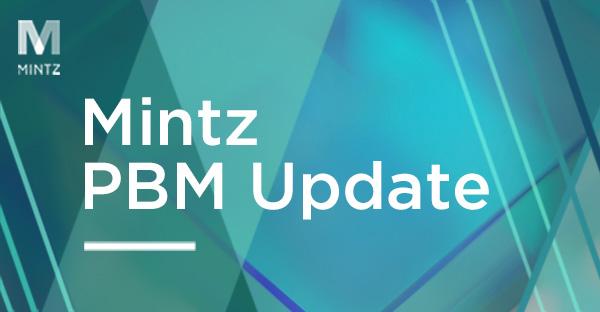
Bridgette advises clients in the health insurance industry, including managed care organizations, PBMs, and integrated delivery systems, ACOs, and providers on a variety of regulatory, fraud and abuse, and business planning matters. Her practice centers on compliance with federal health care program regulatory requirements, with a focus on reimbursement issues and value-based contracting.
Bridgette regularly counsels clients regarding risk-adjusted reimbursement programs and the practices that support them, including Medicare Advantage Organizations (MAOs) and ACOs participating in the Medicare Shared Savings Program (MSSP). Bridgette has experience conducting and defending investigations regarding fraud and abuse issues, including billing compliance related to Medicare, Medicaid, and TRICARE. She also works closely with discount medical plans (DMPOs) and other clients in the health care industry on matters relating to compliance with state regulations.
Bridgette is interested in value-based healthcare. She works closely with payors, providers, and ACOs, on a variety of innovative collaborations and has experience negotiating and papering these relationships.
With a background in health care operations, Bridgette is able to provide clients with practical insight that includes a focus on the business implications of health care regulatory and compliance, internal investigations, and fraud and abuse analyses of proposed new procedures. Bridgette applies her experience in health system administration and ethics in health care to her health law practice. Prior to practicing law, she worked as a health care ethicist at the Department of Veterans Affairs National Center for Ethics in Health Care (NCEHC) and held other health system operations positions within VHA.
Most recently, Bridgette began hosting Health Law Diagnosed, Mintz’s health law podcast and she is a frequent author on Mintz’s Health Law Viewpoints.
Experience
- Counsels clients regarding Medicare Advantage risk adjustment compliance, including responses to OIG and CMS RADV audits.
- Assists with communication and advocacy with federal health care program regulators, including CMS and the HHS OIG.
- Drafts and negotiates complex services agreements between health plans and PBMs.
- Monitors changes and developments in state laws that impact the PBM industry and other related stakeholders.
- Conducts internal investigations into potential fraud and abuse matters and manage multiple key stakeholders.
- Develops and implements compliance reviews to recommend and identify compliance best practices.
- Assisted with the defense and settlement of a five-year False Claims Act investigation conducted by multiple U.S. Attorney’s Offices and DOJ’s Civil Division on behalf of a national health care provider. We successfully convinced the Office of Inspector General for the Department of Health and Human Services not to pursue a Corporate Integrity Agreement.
- Represented a national health care provider in a False Claims Act investigation conducted by the U.S. Attorney’s Office for the Southern District of New York. The government ultimately declined to intervene, and the relator chose to voluntarily dismiss the case.
- Assisted with the defense of a diagnostics company in a national criminal and civil investigation involving multiple US Attorneys’ Offices and state Attorneys' General Offices. The investigation involved alleged kickback issues and billing violations.
viewpoints
Massachusetts Establishes Road-Map for New ACO Program
April 22, 2016 | Blog | By Bridgette Keller, Daria Niewenhous
Delay in Final Rule Implementing PAMA: Sunshine Act Revisited?
March 31, 2016 | Blog | By Bridgette Keller, Karen Lovitch
CMS Releases 2017 Advance Notice and Draft Call Letter
February 29, 2016 | Blog | By Bridgette Keller, Lauren Moldawer
Groundbreaking Multi-Payer Alignment on Core Measures for Quality-Based Payments
February 23, 2016 | Blog | By Bridgette Keller
ML Strategies Publishes Washington Outlook for 2016
January 20, 2016 | Blog | By Bridgette Keller
The Managed Care Industry – 2015 Year in Review
January 6, 2016 | Blog | By Bridgette Keller
HHS Drug Pricing Forum Highlighted in ML Strategies' Health Care Update
November 24, 2015 | Blog | By Bridgette Keller
ML Strategies: Medicare Cuts in the Crosshairs of a Budget Agreement?
October 21, 2015 | Blog | By Bridgette Keller
Hot Topics in Laboratory Compliance at AHLA’s Fraud and Compliance Forum
September 24, 2015 | Blog | By Bridgette Keller
Personalized Medicine and Alternative Payment Models
August 19, 2015 | Blog | By Bridgette Keller
News & Press
Twenty-nine Mintz Attorneys Named to 2023 New York Metro Super Lawyers List
September 22, 2023
NEW YORK – Mintz is pleased to announce that 18 attorneys have been named New York Metro Super Lawyers and 11 attorneys have been named New York Metro Rising Stars by Super Lawyers for 2023.
Twenty-six Mintz Attorneys Recognized as 2022 New York Super Lawyers and Rising Stars
September 29, 2022
17 Mintz attorneys have been named New York Metro Super Lawyers and nine Mintz attorneys have been named New York Metro Rising Stars by Super Lawyers for 2022.
podcasts
Health Law Diagnosed – Understanding the New Massachusetts Health Care Market Review Law
March 11, 2025 | Podcast | By Bridgette Keller, Deborah Daccord, Kate Stewart, Cassandra Paolillo
Host Bridgette Keller discusses the new Massachusetts Health Care Market Review Law and what this means for health care providers, investors, and other key stakeholders. She is joined by Member Deb Daccord, Of Counsel Cassie Paolillo, and Of Counsel Kate Stewart, who share their insights on the law’s far-reaching implications.
Health Law Diagnosed – New Year's Gratitude
February 3, 2025 | Podcast | By Bridgette Keller, Alison H. Peters, Samantha Kingsbury, Theresa Carnegie, Joanne Hawana, Abdie Santiago, Stephnie John, Pamela Polevoy, Karen Lovitch, Jean D. Mancheno, Deborah Daccord, Rachel A. Alexander, Jane Haviland, David Gilboa, Kathryn Edgerton, Hassan Shaikh, Madison Castle, Laurence Freedman, Priyanka Amirneni, Samantha Hawkins, Tara E. Dwyer, Rachel Yount, Sophia Temis, Xavier Hardy
Host Of Counsel Bridgette Keller invites the Mintz Health Law team to reflect on what they’re grateful for as they prepare for the year ahead. Hear from a dynamic group of Members, Of Counsel, and Associates as they share their perspectives on what’s coming up over the horizon.
Health Law Diagnosed – The 2024 Election and Health Care Policy
January 16, 2025 | Podcast | By Bridgette Keller, Alexander Hecht
Host Of Counsel Bridgette Keller is joined by Alex Hecht, ML Strategies Executive Vice President & Director of Operations, Washington, DC, as they dive into potential health care policy changes on the horizon following the 2024 election and what stakeholders can expect in 2025.
Health Law Diagnosed – Women Leaders in Health Care: Investing in Women’s Health
October 11, 2024 | Podcast | By Bridgette Keller
Host Bridgette Keller, joined by Lauren Edgerton, Healthcare Director at Piper Sandler, and Kathryne Cooper, Partner at Jumpstart Nova leads a conversation around investing in women's health.
Health Law Diagnosed – Women Leaders in Health Care: The Emerging Role of AI in Health Care
March 22, 2024 | Podcast | By Bridgette Keller
In the latest episode of Health Law Diagnosed – Women Leaders in Health Care, host Bridgette Keller leads a conversation around the emerging role of artificial intelligence (AI) in health care.
Health Law Diagnosed – A Discussion on the Regulatory Requirements for LDTs
March 7, 2024 | Podcast | By Bridgette Keller, Joanne Hawana, Benjamin Zegarelli
In this episode of Health Law Diagnosed, host Bridgette Keller is joined by Mintz Health Law attorneys Joanne Hawana and Benjamin Zegarelli to discuss the FDA’s long-awaited proposed rules that actively regulate laboratory developed tests (LDTs).
Health Law Diagnosed — Mintz Health Law Team: Reflecting on What We Are Grateful For
February 5, 2024 | Podcast | By Bridgette Keller
As the Mintz Health Law team welcomes the beginning of 2024, many of its members take a moment to reflect on the exciting growth of the Health Law Practice, opportunities to partner with clients on complex legal issues, and the celebration of numerous milestones.
Health Law Diagnosed – Women Leaders in Health Care: The Role and Importance of Mentorship
November 30, 2023 | Podcast | By Bridgette Keller
In the inaugural episode of our new series of Health Law Diagnosed titled Women Leaders in Health Care, host Bridgette Keller speaks with in-house attorneys Leah Pollema of InhibRx and Serene Katranji of Orchard Laboratories about the importance of mentorship.
Health Law Diagnosed – CA Proposes Regs for Pre-Closing Review of Health Care Deals: What You Need to Know
August 21, 2023 | Podcast | By Lara Compton, Deborah Daccord, Bridgette Keller, Daria Niewenhous
Mintz Health Law attorneys discuss regulations recently proposed by California’s newly established Office of Health Care Affordability, which call for advance regulatory review of certain health care entity mergers, acquisitions, affiliations, and other arrangements.
Health Law Diagnosed – EnforceMintz – Part 2: DOJ Regulatory and Policy Update
April 25, 2023 | Podcast | By Bridgette Keller, Eoin Beirne, Karen Lovitch, Brian Dunphy
In this episode, Health Care Enforcement Defense specialists Eoin Beirne, Karen Lovitch, and Brian Dunphy discuss key regulatory and policy updates issued by the DOJ and their potential impact on False Claims Act cases, from self-disclosure to privacy regulations.
Events & Speaking
Legal, Ethical, and Practical Issues for Vaccine Credentials and Verification for Workplaces
Lawline
Online Event

Recognition & Awards
Included on the New York Super Lawyers Rising Star: Health Care list (2020-2023)
ABA-BNA Award for Excellence in the Study of Health Law
Involvement
- Member, American Health Lawyers Association (AHLA)
- Member, American Bar Association (ABA)
- Member, American College of Healthcare Executives (ACHE)





